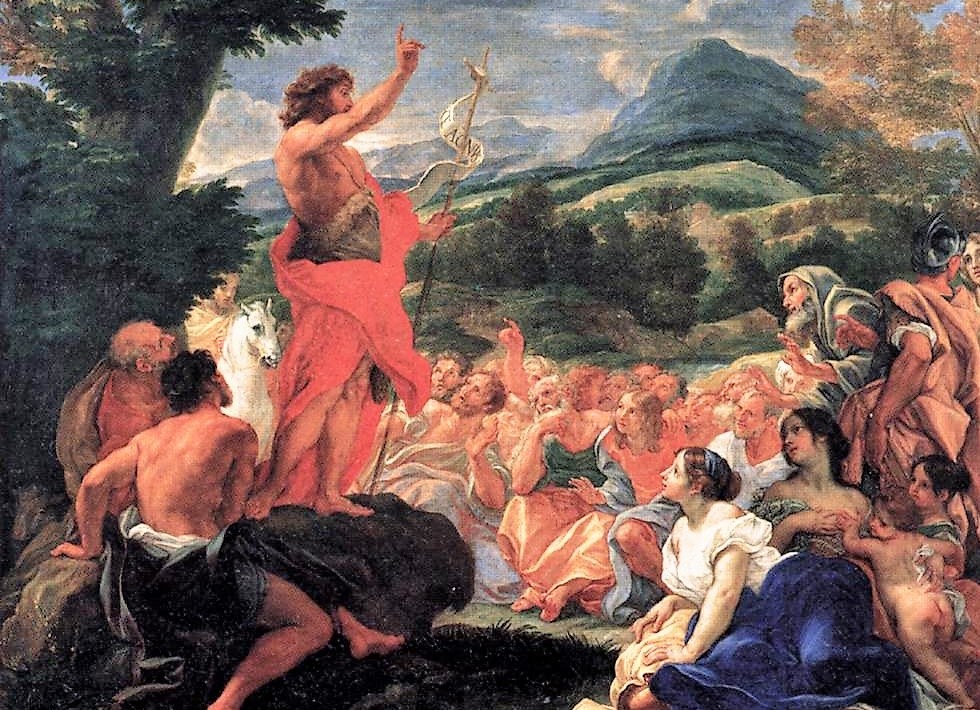Gospel Reflection – Lk 3:10-18
3rd Sunday of Advent – Year C
Jijo Kandamkulathy, CMF
Claretian Publications, Macau
The gospel passage today presents people taking advice from John the Baptist to prepare for the coming of the Kingdom of God. If you remember, last Sunday, we reflected on John calling the people to the desert of discernment. Many people went to listen to him. They were ordinary people, tax collectors, and even soldiers. The gospels have answers to our search to find what we should do to prepare for the Kingdom of God. We should also begin our discernment just as they began discerning with his help. John mirrored to them the hills and valleys they had formed in their personal lives. He guided to a nobler life, preparing them for the Kingdom, the ordinary people who did not care for those who were poor, tax collectors who overtaxed, and soldiers who exacted a lot from the people. John’s advice encouraged them to live their lives with a little more care for others.
Most people are used to caring only for themselves. All of us are hardwired to protect ourselves and those belonging to us, accumulating for us. Although there is a self-preservation drive involved in this attitude, there is also selfishness. The invitation of John is to overcome these natural drives and begin to care for people who are not under our protection and care. We should prepare for Christmas with a little more care for others, with a little more nobility in living.
Learning values that they were unfamiliar with brought them to seek advice from John, this veteran in the desert. The accompaniment of those who have seen and survived the deserts of life would be spiritually nourishing for the seekers. Not only the words of John but his life example also displays virtues that we can learn. John the Baptist raised new hopes in the people, thinking that he might be the Messiah. When he had all possibilities of impersonating the Messiah, John behaves like a man of extraordinary nobility. He says that he is not the Messiah and indicates the coming of the true Messiah. Giving way is the most dignified way. A stunning example of this, I remember, is Mahatma Gandhi, the father of India. He was the architect of India’s independence. On the eve of independence when the streets were dancing with joy, Gandhiji, with an extraordinary display of nobility, gives the task of forming the government to others and walks away to another task.
Closer to our own times, Pope Benedict is a brilliant example of such nobility. In the tradition of popes ruling for a lifetime, Pope Benedict is an exception, choosing to step down and give way to a new person. Despite many journalists trying to get sound-bites that could be used against Pope Francis, Pope Benedict stayed clear of making any comments on the ministry of Pope Francis. Giving way, and that in the most dignified way, is a virtue that we can all learn from Pope Benedict.
In the Old Testament, the relationship between Jonathan and David is one of such noble acts of giving way. Saul was trying to make Jonathan the unchallenged heir of his kingdom. So Saul tries to annihilate David, whom people appreciated. Whereas Jonathan, for love and respect for the person and prowess of David, gives way with nobility. We find the incident of Peter and John running together to the tomb of Jesus. John, the younger of them, reaches the tomb first but waits to give way to the older Peter to go in first! Amazing examples of giving way.
Jesus would highlight this nobility. When invited for a meal, do not choose the prominent seats. Being humble is that noble way that John and Jesus are suggesting. This virtue is not to be mistaken for accepting suffering. Sufferings are imposed on you whereas sacrifices are volunteered out of love. John does sacrifice, a loving gesture of giving way to the other. When sufferings are accepted with love, they get transformed into noble acts of sacrifice.
In a low-income family, when the mother finds a shortage of food, she lovingly takes the watery soup, giving better food to the children. Worried about the shortage, the father pretends to be full and comically burps to convince that he is full. Think of these signs of great nobility in the daily lives of the poor!


 Follow
Follow


